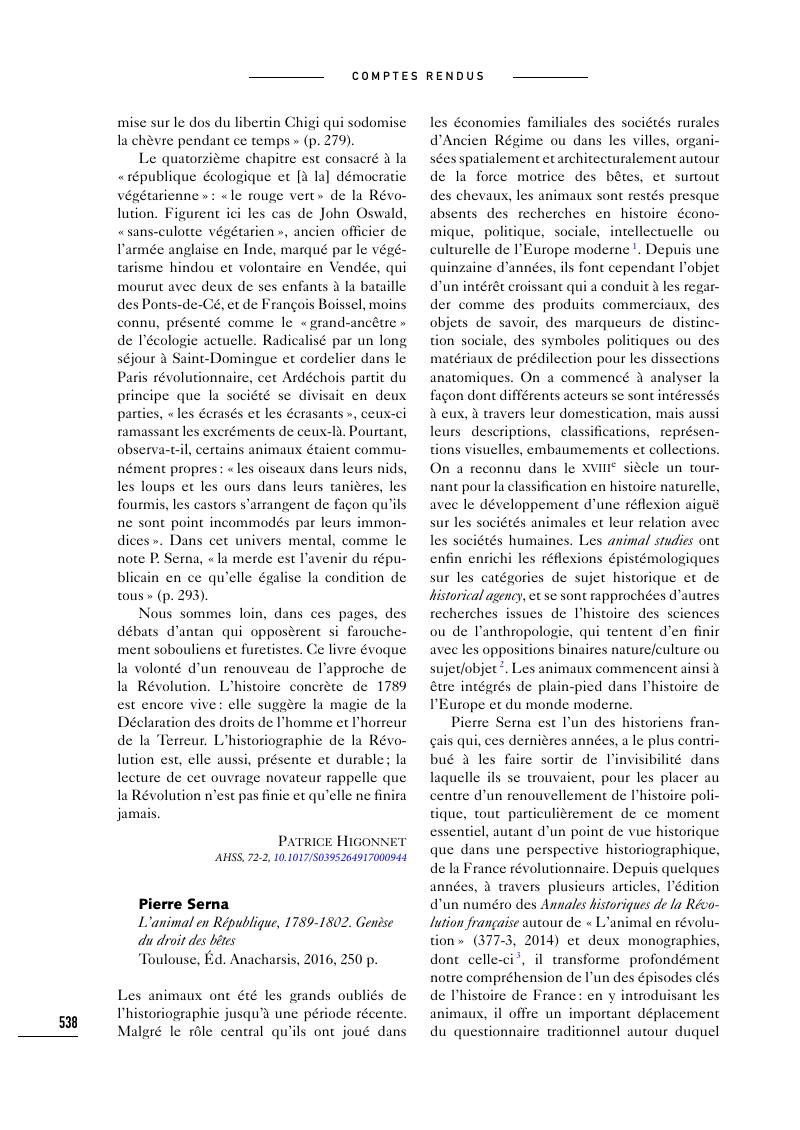No CrossRef data available.
Article contents
Pierre Serna L'animal en République, 1789-1802. Genèse du droit des bêtes Toulouse, Éd. Anacharsis, 2016, 250 p.
Published online by Cambridge University Press: 20 February 2018
Abstract

- Type
- Anthropocène, environnement, sciences (comptes rendus)
- Information
- Copyright
- Copyright © Éditions de l'EHESS
References
1 Daniel Roche, La culture équestre occidentale, xvie-xixe siècles. L'ombre du cheval, t. 1, Le cheval moteur, t. 2, La puissance et la gloire, t. 3, Connaissance et passion, Paris, Fayard, 2008-2015.
2 Erica Fudge, Perceiving Animals: Humans and Beasts in Early Modern England [1999], Urbana, University of Illinois Press, 2002 ; Lorraine Daston et Gregg Mitman (dir.), Thinking with Animals: New Perspectives on Anthropomorphism, New York, Columbia University Press, 2005 ; Bruno Latour, Nous n'avons jamais été modernes. Essai d'anthropologie symétrique, Paris, La Découverte, 1991 ; Donna J. Haraway, When Species Meet, Minneapolis, University of Minnesota Press, 2007 ; Peter Sahlins, The Year of the Animal: 1668 and the Making of Early Modern France, New York, Zone Books, 2017.
3 Pierre Serna, Comme des bêtes. Histoire politique de l'animal en révolution (1730-1840), Paris, Fayard, 2017.
4 Sylvana Tomaselli, « The Enlightenment Debate on Women », History Workshop Journal, 20, 1985, p. 101-124 ; Barbara Taylor, « Enlightenment and the Uses of Woman », History Workshop Journal, 74, 2012, p. 79-87.


